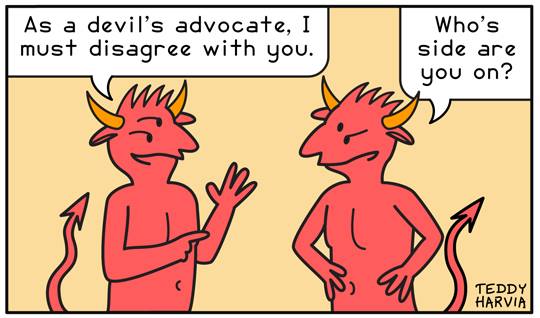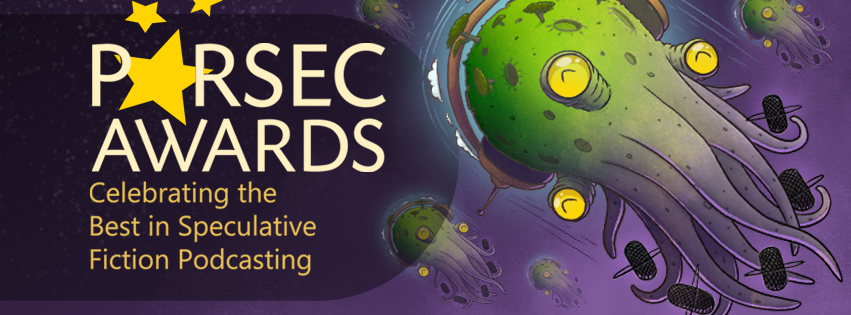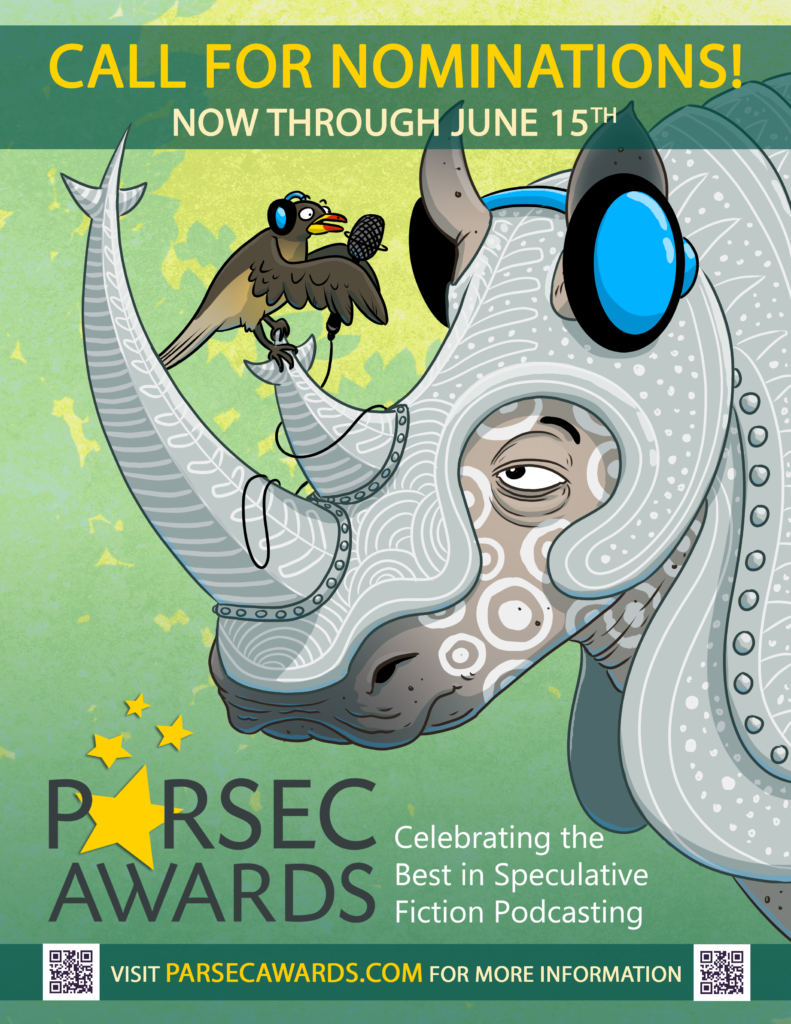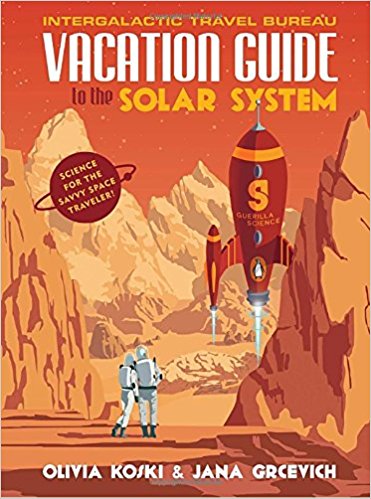
(1) MCINTYRE HEALTH UPDATE. Vonda McIntyre, one of sff’s most loved figures, is seriously ill. A Caringbridge page has been started: “Vonda N.’s Story”.
Vonda spent much of Seattle’s snow week at Swedish Hospital with jaundice and some vertigo, having many tests. The test results are in now, and the news is not good. The diagnosis is inoperable metastatic pancreatic cancer. Her doctor said it isn’t stupid to hope for a year, but it could be less. She’ll probably be getting treatment that may or may not slow things down, no way to know for sure.
(2) #COPYPASTECRIS. Nora Roberts tells some things she’s learned about plagiarists and people scamming Amazon’s Kindle Unlimited author revenue system in “Not a Rant, but a promise”.
The count of my books lifted from is now five. And the count of writers victimized has gone up.
I’m getting one hell of an education on the sick, greedy, opportunistic culture that games Amazon’s absurdly weak system. And everything I learn enrages me.
There are black hat teams, working together, who routinely hire ghosts on the cheap, have them throw books together, push them out–many and fast–to make money, to smother out competition from those self-pubbed writers who do their own work. Those who do their own work can’t possibly keep up with the volume these teams produce by these fraudulent tactics.
They tutor others how to scam the system….
(3) A WHIRLWIND OF FANAC. Joe Siclari of Fanac.org reports “We’ve been getting a lot done, and last weekend we had a particularly productive Boskone.”
At Boskone, the FANAC scanning station scanned almost 2000 pages of material. Scanning by Mark Olson, Edie Stern and Joe Siclari. History-minded fans stopped by and provided material (thanks Geri Sullivan!), and promised more. We have promises of photos and fanzines, and have already received a historical recording from Fred Lerner, and new scanning hardware too.
The zines scanned at Boskone will be so marked in the index pages of the title, so you can see what we did. So far, we have put online about 850 pages of it. So far from the Boston scanning we’ve put up issues of George Locke’s Smoke, Richard Bergeron’s Warhoon, Charles Lee Riddle’s Peon, Don Miller’s WSFA Journal, the Coulsons’ Yandro and brown and Katz’s Focal Point.
They can all be accessed from the Classic Fanzines List. More issues will be forthcoming.
(4) RIGHT IN THE EYE. How would you like to go out this way? From NPR: “NOAA Researcher’s Ashes Were Dropped Into The Eye Of Hurricane Michael”.
Last fall, as Hurricane Michael was swirling toward the Florida panhandle, NOAA officials say it was carrying something in addition to rain and wind — the ashes of long-time hurricane researcher, Michael Black. Black was a research meteorologist who worked at the Hurricane Research Division of NOAA’s Atlantic Oceanographic and Meteorological Laboratory on Virginia Key, just across the bridge from downtown Miami.
He was a pioneer in the use of dropwindsondes — small measuring devices dropped from airplanes that record wind speed, air pressure, temperature and humidity.
In 1997, on a mission flying through Hurricane Guillermo in the Pacific, he had an audacious idea. Why not drop some dropwindsondes — sometimes called dropsondes — directly into the eyewall of a hurricane?
NOAA research meteorologist Stan Goldenberg, who worked with Michael Black for more than two decades, recalls that flight with Black 21 years ago: “I remember the excitement we felt at seeing these winds and knowing these ‘sondes’ could handle it.” Black’s idea suddenly provided hurricane researchers with an important new data tool.
(5) PARSEC AWARDS. Bruce Press will step down as chair of the Parsec Awards Committee if he can find somebody to take his place. The sff podcast awards organizers have been reeling since December, when four 2018 Parsec Awards winners declined because the committee sustained the decision to give an award an alleged harasser. Today Press sent this statement to his distribution list:
After a pretty grueling 2018 for the committee, we were taking a bit of a breather to get our collective heads together.
We very much want to get trophies out to winners who want them, but we are without funds having done absolutely no fundraising in 2018. Our lack of resources is due to lack of resources. So, that’s item 1.
Item 2 is our perennial problem of manpower and leadership. The committee is severely short-staffed. We hoped to grow by creating sub-committee’s like ceremony and fundraising. However, it turns out that takes leadership and we only had me.
Item 3 is me. While item 2 might have been enough reason alone, I have some really good personal reasons to step down as committee chair. The timing of this is not ideal, but life rarely operates on a convenient schedule. Like previous chairs, I am not immediately leaving the committee.
So, here’s what I’m asking. If you think you have what it takes to lead. If you have a plan and can execute it. Whether overall, ceremony or fundraising. Send us an email parsecawards@gmail.com.
(6) TODAY IN HISTORY.
- February 23, 1896 –Tootsie Roll introduced
- February 23, 1935 — The Phantom Empire starred Gene Autry, it was an SF musical western.
(7) TODAY’S BIRTHDAYS.
[Compiled by Cat Eldridge.]
- Born February 23, 1564 — Christopher Marlowe. Author of Doctor Faustus (or The Tragical History of the Life and Death of Doctor Faustus. Look, ISFDB lists him, so he must be genre. More to the point Elizabeth Bear made him a character in her Stratford Man series which is Ink and Steel and Hell and Earth novels which is highly recommended. If you’ve not read them, the Green Man review is here. (Died 1593.)
- Born February 23, 1930 — Gerry Davis. Mid-Sixties Story Editor on Doctor Who where he created companion Jamie McCrimmon and co-created the Cybermen along with unofficial scientific adviser Dr. Kit Pedler. They would create the Doomwatch series in the Sixties on BBC. Davis briefly returned to writing for Doctor Who, penning the first script for Revenge of the Cybermen though his script was largely abandoned by editor Robert Holmes. In 1989 he and Terry Nation who created the Daleks made a failed bid to take over production of the series and reformat it for the American market. (Died 1991.)
- Born February 23, 1932 — Majel Barrett. No doubt best remembered for being Nurse Christine Chapel and Lwaxana Troi as well as for being the voice of most ship computer interfaces throughout the Star Trek series. I’ll note that she was originally cast as Number One in the unused (TOS) Pilot but the male studio heads hated the idea of a female in that role. Early Puppies obviously. (Died 2008.)
- Born February 23, 1965 — Jacob Weisman, 54. Founder, Tachyon Publications which you really should go look at as they’ve published every great author I’d care to read. Seriously Tidhar, Beagle and Yolen are among their newest releases! He also edited (with Beagle) The New Voices of Fantasy which I highly recommend as most excellent reading.
- Born February 23, 1970 — Marie-Josée Croze, 49. Bibiane Champagne In Maelström which is genre if only because it’s narrated by a talking fish. In Canada movie theatres, she was in Battlefield Earth: A Saga of the Year 3000 as Mara. Yeah, that film with a long title. Doubt it improved it. It looks like her first genre acting was on The Hunger in two episodes, in “A Matter of Style” as Dominique and in “I’m Dangerous Tonight” as Mimi. Oh, and she had the lead as Pregnant Woman in Ascension which just looks weird.
- Born February 23, 1994 — Dakota Fanning, 25. Genre roles include Sally Walden in The Cat in the Hat which is on my worst films of all time list, Katie In Hansel and Gretel, Rachel Ferrier In War of the Worlds which, errr, is on the same list, and as the voice of Fern Arable In Charlotte’s Web which is brilliant.
- Born February 23, 2002 — Emilia Jones, 17. I’m reasonably sure this is the youngest Birthday I’ve done. At nine years of age, she’s made her acting debut in Pirates of the Caribbean: On Stranger Tides as English Girl. She’s Young Beth in the horror film Ghostland. She shows up on Doctor Who as Merry Gejelh in the “The Rings of Akhaten”, an Eleventh Doctor story. She’s currently in Residue, an SF horror series you can find on Netflix.
(9) COMICS SECTION.
- Free Range shows the monstrous side of photography.
(10) CRITICAL FAVORITES. On the Strange at Ecbatan blog Rich Horton is working through his Hugo recommendations.
Of these stories – none of which would disappoint me if they won the Hugo – my four favorites, in no particular order, are…
2. David Gerrold and Ctein, “Bubble and Squeak” – About a gay couple, hoping to get married, who have their plans interrupted by a tsunami heading to Los Angeles, and who have to find a way to get to higher ground – and, as it turns out, help a bunch of others as well. It’s simply terrifically exciting, involving a plausible mix of heroism, foolishness, brutality, luck, and intelligence, on their part and others, as they struggle to find a way to a safe place, and as various options are closed off over time.
4. Kelly Robson, “Intervention” (Infinity’s End) — A very intelligent story about child rearing in a heavily inhabited future Solar System. The narrator is from Luna, where creche work is socially frowned upon, so she leaves to work on an asteroid-based creche – and then later gets a chance to work on a bid to reform Luna’s failing creche system. This is just really interesting social speculation; and the characters are also very solidly portrayed, very honest.
5. Karen Russell, “Orange World” (The New Yorker, 6/4/18) – An older first time mother is driven to make a deal with a literal devil to save the life of her child, and only the intervention of her support group allows her to cope … Really well written, really convincing.
(11) STAR WARS WRAPS. Entertainment Tonight did a red carpet interview of “J.J. Abrams on Wrapping ‘Star Wars: Episode IX’ and Bringing Back Lando (Exclusive)” (video).
(12) DOLLARS AND SENSE. Alasdair Stuart’s The Full Lid for February 22 includes a wryly-named commentary on cancelled cable sff shows – “Boulevard of Broken Streams.”
Netflix have done what Thanos couldn’t; wiped out an entire section of the Marvel universe. It was announced this week that The Punisher is done with season 2 and Jessica Jones with season 3. That will air later this year and be the swan song for a five (and a half) show mini-universe.
My feelings about this are, to mis-quote the best line in the entire Mission: Impossible franchise, complicated.
For a start there’s the Rat King of fan speculation and business practice to try and untie. We can all clap as loud as we want, the shows were never going to the Disney streaming platform because that platform has to aim for the widest possible audience. It’s also almost certainly what raised the renewal costs for the shows beyond practical. So, rationally, this all makes sense. It’s annoying, but it does make sense….
(13) PATIENCE, GRASSHOPPER. And here I thought it was a disaster of Biblical proportions: “What An Insect Can Teach Us About Adapting To Stress”.
What if we told you that you could learn a lot about handling adversity from the life of a bug? In their explorations of humans and how we interact with the world around us, the team that makes NPR’s Invisibilia stumbled on a surprising fact about the insect world — one that could inspire a new way of looking at ourselves.
The epic destruction wrought by swarms of locusts is downright biblical. Exodus tells of a plague that left nothing green in all of Egypt, and we’ve seen these harbingers of destruction at work in modern day Australia, Argentina and Israel, just to name a few. But for centuries, one essential piece of information about these strange insects eluded scientists: Where do they come from?
These massive swarms just seemed to pop up out of nowhere, decimate everything and then vanish.
(14) GRIND YOUR GOGGLES INTO PLOWSHARES. NPR reports “Microsoft Workers Protest Army Contract With Tech ‘Designed To Help People Kill'”.
Microsoft workers are calling on the giant tech company to cancel its nearly $480 million U.S. Army contract, saying the deal has “crossed the line” into weapons development by Microsoft for the first time. They say the use of the company’s HoloLens augmented reality technology under the contract “is designed to help people kill.”
In a letter to Microsoft CEO Satya Nadella and President Brad Smith, the workers also say the company is failing to inform its engineers “on the intent of the software they are building.”
The November contract is for what’s called an Integrated Visual Augmentation System.
“The contract’s stated objective is to ‘rapidly develop, test, and manufacture a single platform that Soldiers can use to Fight, Rehearse, and Train that provides increased lethality, mobility, and situational awareness necessary to achieve overmatch against our current and future adversaries,’ ” the letter said.
(15) KNOCKING THE COMPETITION. A Business Insider reporter was there: “Jeff Bezos just gave a private talk in New York. From utopian space colonies to dissing Elon Musk’s Martian dream, here are the most notable things he said.”
• Jeff Bezos, the founder of Amazon, gave a talk to a members-only event at the Yale Club in New York on Tuesday.
• During the 30-minute lecture, Bezos said his private aerospace company, Blue Origin, would launch its first people into space aboard a New Shepard rocket in 2019.
• Bezos also questioned the capabilities of a space tourism competitor, Virgin Galactic, and criticized the goal of Elon Musk and SpaceX to settle Mars with humans.
• Ultimately, Bezos said he wants Blue Origin to enable a space-faring civilization where “a Mark Zuckerberg of space” and “1,000 Mozarts and 1,000 Einsteins” can flourish.
• Bezos advised the crowd to hold a powerful, personal long-term vision, but to devote “the vast majority of your energy and attention” on shorter-term activities and those ranging up to 2- or 3-year timeframes.
(16) THE WEST END ZONE. In the February 16 Financial Times (behind a paywall), Matt Trueman profiles Anne Washburn, whose play based on The Twilight Zone is opening March 4 at The Ambassador Theatre in London.
“Her stage version of The Twilight Zone transfers into town next month. On the surface, it’s a straightforward celebration of Rod Serling’s cult TV series. Having watched all 156 episodes,she selected those stories that stuck in America’s psyche. ‘I was polling anyone I ran into: What Twilight Zone episode traumatized you as a small child? People would answer immediately. That’s where it lives in our culture.”
“In April, The Twilight Zone‘s getting a high profile reboot by Get Out director Jordan Peele, but Washburn’s incarnation celebrates its loveable, low-fi 1950s charm. Its schlockiness, essentially.’It’s morality,comedy, and horror at the same time,’ beams Washburn. ‘That’s very appealing.’ The show sends up its arched-eyebrowed asides and cheap cardboard cut-outs. ‘Where things are less adept, you can see right to its heart. That’s always moving.’
“Insightful, too, as Washburn unpeels The Twilight Zone‘s skin to show us a glimpse of America’s soul in its recurring images: alien invasions and nuclear oblivion. ‘The Twilight Zone is about America dreaming–or America’s nightmare.'”
(17) SPIDER-SAN. CBR.com: shares the image: “Spider-Man: Far From Home Gets Spectacular Japanese Poster”.
Sony Pictures has released a new poster promoting the Japanese release of the upcoming Marvel film Spider-Man: Far From Home, and it’s really awesome.
This exceptionally creative poster features a typographic image of Spider-Man’s mask composed almost entirely of bold, red Japanese text. The words and phrases used to create Spidey’s face mostly reference different aspects of the film, with the text repeating “summer vacation.” There are also numerous references to Nick Fury. Moreover, where Spider-Man’s mouth ought to be, there is a QR code that links to Spider-Man: Far From Home‘s Japanese trailer, which is the same as the international trailer.

(18) PUMP, BROTHERS. Food Network advises, “Throw Away Your Peanut Butter Knife!” This clearly isn’t genre, but it is a “great” “scientific” advance. Or it is you can’t resist both peanut butter and silly gadgets.
Who knew the world was clamoring for a better – or at least different – way to prepare a peanut butter sandwich?
One week after a Burbank, California, inventor/entrepreneur named Andrew Scherer launched an Indiegogo page to raise funds for his new Peanut Butter Pump, promising a way to eat “Peanut Butter Without the Knife,” the project has raised $46,955 (from more than 1,220 backers) and counting – more than twice its $20,000 goal.
[…] It’s basically a jar top – made to fit onto your standard 40-ounce grocery-store or name-brand peanut butter jar – with a pump top and a plunger inside that presses down the peanut butter, leaving the sides of the jar clean as it goes, and dispensing the peanut butter out the top and directly onto your bread or celery stick or wherever you’re aiming it.
(19) WITH AUTOMATIC UPSELL. Welcome to Uncanny Valley Restaurant. “This Fast Food Drive-Thru Is Now Using AI to Take Orders” – Futurism has the story.
We already had a robot that could make fast food burgers. And now we have an artificial intelligence that can take your order for one.
Earlier this month, Colorado-based startup Valyant AI announced the launch of a voice-based AI customer service platform, which is now taking customer orders at the drive-thru at Denver’s Good Times Burgers and Frozen Custard.
“We’re excited to deliver a customer service experience unlike anything you’ve ever experienced before,” Valyant AI CEO Rob Carpenter said in a press release.
A video demonstration is here.
[Thanks to Chip Hitchcock, Emperox JJ, Martin Morse Wooster, John King Tarpinian, James Davis Nicoll, Mike Kennedy, Cat Eldridge, Carl Slaughter, and Andrew Porter for some of these stories. Title credit goes to File 770 contributing editor of the day Tom Becker.]






